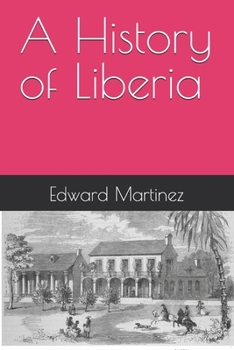A History of Liberia
Liberia's history is a story of profound paradox, born not in Africa, but from the troubled conscience of 19th-century America. This sweeping narrative begins with the controversial American Colonization Society, an alliance of abolitionists and slaveholders who sought to resettle free African Americans on the West African coast. The book chronicles the perilous journey of these settlers, their desperate struggle for survival on Cape Mesurado, and the establishment of Africa's first modern republic in 1847. It explores how, in a tragic irony, the new Americo-Liberian elite replicated the social hierarchies they had fled, creating a deep and enduring chasm between themselves and the indigenous population that would become the nation's central fault line for over a century.
For 133 years, this division was managed under the one-party rule of the True Whig Party, an era of seeming stability that masked deep-seated resentments. The narrative details how this long period of Americo-Liberian dominance came to a bloody and dramatic end with the 1980 military coup led by Master Sergeant Samuel K. Doe. This event, initially celebrated as a liberation by the indigenous majority, soon descended into its own brand of authoritarianism and ethnic favoritism, setting the stage for one of the most brutal and complex civil wars in modern African history.
The book plunges readers into the maelstrom of the two Liberian Civil Wars that raged from 1989 to 2003. It traces the rise of infamous warlords like Charles Taylor, the fragmentation of the nation into warring factions, and the horrific use of child soldiers. Through a detailed account of failed peace accords, international intervention, and the devastating siege of Monrovia, it paints a vivid picture of a society's complete collapse. The story is a harrowing examination of how political ambition, ethnic hatred, and the lust for control of natural resources like "blood diamonds" and timber can consume a nation.
From the ashes of conflict, an arduous process of rebuilding began, marking a new and hopeful chapter in Liberia's history. This history follows the nation through the largest UN peacekeeping mission in the world, the landmark 2005 election of Ellen Johnson Sirleaf as Africa's first democratically elected female head of state, and the immense challenges of post-war reconstruction. It delves into the difficult quest for justice and reconciliation, detailing the work of the Truth and Reconciliation Commission and the ongoing, deeply divisive debate over the establishment of a war crimes court to hold perpetrators accountable.
Bringing the story to the present day, the narrative covers the populist rise of international football legend George Weah to the presidency, exploring the hopes and disappointments of his administration. It culminates in the nation's first peaceful transfer of power in over seventy years, providing a clear-eyed look at the enduring challenges of corruption, poverty, and youth unemployment that continue to face Liberia. This is the unvarnished story of a unique nation-a compelling and often cautionary tale of hope, betrayal, and the remarkable resilience of the human spirit in the face of overwhelming adversity.
Related Subjects
History




